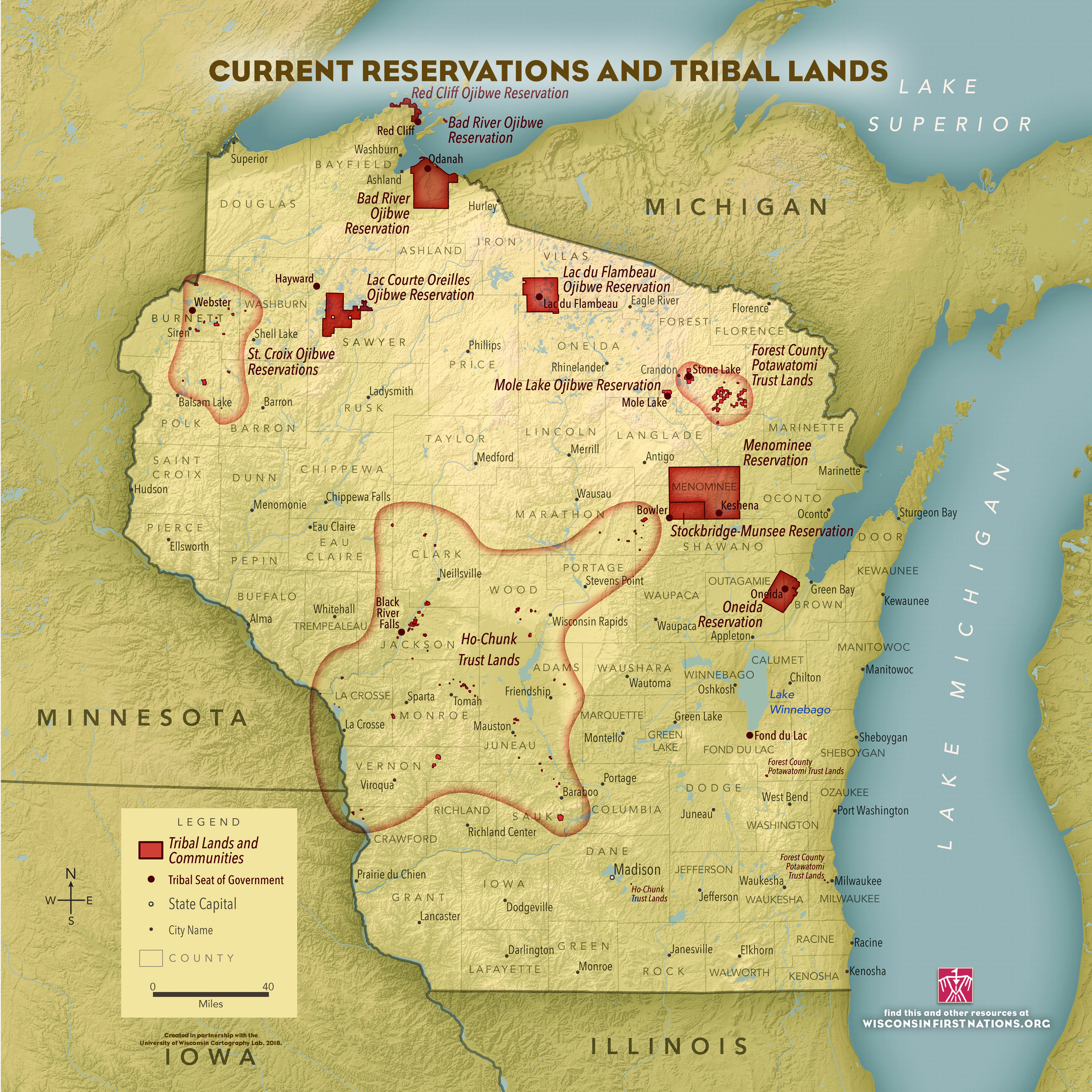The Wisconsin Department of Public Instruction has found the Mellen School District isn’t meeting state standards for teaching about cultural diversity and Wisconsin tribes, but the district’s superintendent disputes those findings.
The department began investigating the northern Wisconsin school district last summer after a community member filed a complaint against Mellen. A May 22 letter detailed the agency’s request for information and meetings held with staff to aid in identifying evidence of materials that met relevant standards.
In its preliminary findings, the department said there was a lack of evidence that Mellen provided adequate instructional materials and library services on the cultural diversity of American society for grades K-12.
News with a little more humanity
WPR’s “Wisconsin Today” newsletter keeps you connected to the state you love without feeling overwhelmed. No paywall. No agenda. No corporate filter.
“Mellen’s evidence provided examples of how it incorporated world cultures into its curriculum, but there was a lack of evidence on instruction on the cultural diversity and pluralistic nature of American society (emphasis included),” the findings state.
For grades K-8, the agency didn’t see enough evidence of adequate texts, such as textbooks or journals, on cultural diversity. On Wisconsin tribes, materials submitted didn’t meet state requirements for teaching about their culture, history or sovereignty at least twice before high school.

Despite the findings, Mellen Superintendent Rhonda Elmhorst-Friemoth said she feels the district of 270 students in Ashland County is meeting state standards.
“We do have instructional materials, texts and library services that reflect the cultural diversity and pluralistic nature of American society,” Elmhorst-Friemoth said. “It is also my opinion that, as part of the social studies curriculum, we do provide instruction on the history, the culture and tribal sovereignty of the federally recognized American Indian tribes.”
Elmhorst-Friemoth said the findings seem like an overreach by the department that seeks to impose its interpretation of state standards rather than the district’s view of adequate materials, texts and library services. She said several of the units, lesson plans and resources submitted were specific to Wisconsin tribes.
Even so, the department concluded some evidence provided was not part of the social studies curriculum that are required under state standards as set forth by Act 31. It also found only one instance of instruction on the history and culture of Wisconsin tribes as part of a fourth-grade social studies project, which the agency deemed had insufficient teachings on tribal sovereignty.
In addition to its curriculum, the department said library services at the district were also lacking. The state requires a library plan, media person, facilities and a current, balanced collection of books. But, reviewers found an aging collection and noted a library media specialist is contracted for roughly two weeks a year. Elmhorst-Friemoth said the school doesn’t have adequate funding for a full-time librarian.
Its contracted specialist stated Mellen’s collection is lacking in many cultural areas “except Native American and African American” titles. State reviewers said the relevance and accuracy of the collection is questionable because more than half of 190 items analyzed were older, and the average age of diverse materials were roughly two decades old. Those items represented a limited selection of its resources, Elmhorst-Friemoth said. She questioned whether some historical documents would be considered irrelevant.
While the district fell short in several areas, the agency found Mellen is providing adequate texts for high schoolers that reflect the nation’s cultural diversity and meeting requirements for teaching those students about Wisconsin tribes.
Mellen resident Nick Vander Puy, who filed the complaint, said he’s pleased with the department’s findings.
“I’m happy that the DPI is attempting to supervise Mellen because they’ve shown by their arrogance and their reluctance to stretch themselves that they probably aren’t going to teach about diversity,” Vander Puy said. “Diversity is a bad word right now in the Mellen School District.”
Vander Puy said he first filed the complaint after tense meetings on critical race theory last year that led to the school board barring teaching CRT in classrooms.

District discussed critical race theory in meetings last year
Last year, Elmhorst-Friemoth said the school board and district held several listening sessions about teaching controversial issues like gender identity and critical race theory.
The theory holds that racism is inherent among social, economic and legal institutions that have oppressed people of color. It’s met opposition among Republican lawmakers in multiple states, including Wisconsin. Last year, Democratic Gov. Tony Evers vetoed a GOP bill that would have barred state schools from teaching students and training staff about systemic racism and sexism.
Elmhorst-Friemoth said the district’s faculty can’t teach from a perspective that the U.S. and its legal institutions are systemically racist and designed to create or maintain inequalities between genders, ethnicities, religious groups or races.
“We’re not indoctrinating children with those kinds of ideas,” she said. “So the board did indicate in policy that we are not teaching critical race theory.”
The district’s policy, which doesn’t specifically reference critical race theory, also states teachers can’t express opinions on controversial issues in the classroom. Elmhorst-Friemoth said equity and diversity can be taught generally without being associated with race, sexual orientation or gender identity. She added the school board and community wants students to learn about race, racism and Indigenous groups.
“It just has to be taught under the context of history — not under white privilege, you know, making kids feel bad that they’re white,” she said. “It’s like reverse racism.”

In the 1980s, Vander Puy said he was at the boat landings as Wisconsin’s Walleye War unfolded. Hundreds of people harassed tribal spearfishers in northern Wisconsin as they sought to exercise their treaty rights to fish on off-reservation lands, resulting in the arrest of 200 nontribal protesters at Trout Lake.
“When I went through the meetings last year, I felt that some of the children and the grandchildren of those people that were screaming at Trout Lake were also screaming about diversity,” Vander Puy said. “They don’t want to talk about brown people, which is indicated by the DPI findings.”
Vander Puy said he believes some community members fear the loss of privilege as society becomes more blended.
“I think a little bit of embarrassment for the way Indian people have been treated all these years is probably healing,” he said. “But the argument that a white child would be embarrassed by this, it doesn’t pass muster in my book.”
DPI issues recommendations for the Mellen School District
The department issued recommendations that included a list of suggested materials to meet state standards on teaching the nation’s cultural diversity, including resources on African American history, Mexican American migrants and LGBTQ+ activism. The agency said texts should address more than world cultures, and it advised the district to provide more current and diverse materials in its library services.
State reviewers also recommended Mellen shift teachings on American Indian tribes that’s currently provided under English or reading classes to its social studies curriculum, as well as review resources on Wisconsin tribes. It also advised training or professional development on equity, diversity and American Indian Studies.
The school board has the right to appeal the findings and request a public hearing within 45 days before a final decision is made on the district’s compliance. The district has 90 days to meet state standards, but extensions may be granted for up to a year.
While Elmhorst-Friemoth hasn’t met with the board, she said her recommendation will be to forgo an appeal and work toward a compliance plan.
Wisconsin Public Radio, © Copyright 2026, Board of Regents of the University of Wisconsin System and Wisconsin Educational Communications Board.




